| Listing 1 - 10 of 14 | << page >> |
Sort by
|
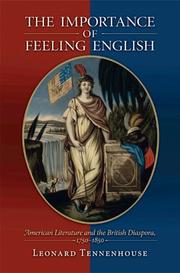
ISBN: 9780691096810 Year: 2007 Publisher: Princeton, N.J. Princeton University Press
Abstract | Keywords | Export | Availability | Bookmark
 Loading...
Loading...Choose an application
- Reference Manager
- EndNote
- RefWorks (Direct export to RefWorks)
English literature --- American literature --- Sociolinguistics --- Caractéristiques nationales anglaises dans la littérature --- Engels volkskarakter in de literatuur --- English national characteristics in literature --- National characteristics [English ] in literature --- Volkskarakter [Engels ] in de literatuur --- Comparative literature --- National characteristics, English, in literature --- English influences --- History and criticism --- American and English --- English and American --- Colonial period, ca. 1600-1775 --- 1783-1850 --- 19th century --- Literature [Comparative ] --- Sociology of literature --- anno 1700-1799
Book
ISBN: 0814315631 Year: 1976 Publisher: Detroit
Abstract | Keywords | Export | Availability | Bookmark
 Loading...
Loading...Choose an application
- Reference Manager
- EndNote
- RefWorks (Direct export to RefWorks)

ISBN: 1282157736 9786612157738 1400827922 9781400827923 9781282157736 9780691096810 0691096813 0691171270 Year: 2009 Publisher: Princeton, NJ
Abstract | Keywords | Export | Availability | Bookmark
 Loading...
Loading...Choose an application
- Reference Manager
- EndNote
- RefWorks (Direct export to RefWorks)
American literature is typically seen as something that inspired its own conception and that sprang into being as a cultural offshoot of America's desire for national identity. But what of the vast precedent established by English literature, which was a major American import between 1750 and 1850? In The Importance of Feeling English, Leonard Tennenhouse revisits the landscape of early American literature and radically revises its features. Using the concept of transatlantic circulation, he shows how some of the first American authors--from poets such as Timothy Dwight and Philip Freneau to novelists like William Hill Brown and Charles Brockden Brown--applied their newfound perspective to pre-existing British literary models. These American "re-writings" would in turn inspire native British authors such as Jane Austen and Horace Walpole to reconsider their own ideas of subject, household, and nation. The enduring nature of these literary exchanges dramatically recasts early American literature as a literature of diaspora, Tennenhouse argues--and what made the settlers' writings distinctly and indelibly American was precisely their insistence on reproducing Englishness, on making English identity portable and adaptable. Written in an incisive and illuminating style, The Importance of Feeling English reveals the complex roots of American literature, and shows how its transatlantic movement aided and abetted the modernization of Anglophone culture at large.
Wisselwerking. --- Bellettrie. --- National characteristics, English, in literature. --- Comparative literature --- American literature --- English and American. --- American and English. --- History and criticism. --- History and criticism --- English influences. --- Engeland. --- Verenigde Staten. --- ABŞ --- ABSh --- Ameerika Ühendriigid --- America (Republic) --- Amerika Birlăshmish Shtatlary --- Amerika Birlăşmi Ştatları --- Amerika Birlăşmiş Ştatları --- Amerika ka Kelenyalen Jamanaw --- Amerika Qūrama Shtattary --- Amerika Qŭshma Shtatlari --- Amerika Qushma Shtattary --- Amerika (Republic) --- Amerikai Egyesült Államok --- Amerikanʹ Veĭtʹsėndi︠a︡vks Shtattnė --- Amerikări Pĕrleshu̇llĕ Shtatsem --- Amerikas Forenede Stater --- Amerikayi Miatsʻyal Nahangner --- Ameriketako Estatu Batuak --- Amirika Carékat --- AQSh --- Ar. ha-B. --- Arhab --- Artsot ha-Berit --- Artzois Ha'bris --- Bí-kok --- Ē.P.A. --- EE.UU. --- Egyesült Államok --- ĒPA --- Estados Unidos --- Estados Unidos da América do Norte --- Estados Unidos de América --- Estaos Xuníos --- Estaos Xuníos d'América --- Estatos Unitos --- Estatos Unitos d'America --- Estats Units d'Amèrica --- Ètats-Unis d'Amèrica --- États-Unis d'Amérique --- Fareyniḳṭe Shṭaṭn --- Feriene Steaten --- Feriene Steaten fan Amearika --- Forente stater --- FS --- Hēnomenai Politeiai Amerikēs --- Hēnōmenes Politeies tēs Amerikēs --- Hiwsisayin Amerikayi Miatsʻeal Tērutʻiwnkʻ --- Istadus Unidus --- Jungtinės Amerikos valstybės --- Mei guo --- Mei-kuo --- Meiguo --- Mî-koet --- Miatsʻyal Nahangner --- Miguk --- Na Stàitean Aonaichte --- NSA --- S.U.A. --- SAD --- Saharat ʻAmērikā --- SASht --- Severo-Amerikanskie Shtaty --- Severo-Amerikanskie Soedinennye Shtaty --- Si︠e︡vero-Amerikanskīe Soedinennye Shtaty --- Sjedinjene Američke Države --- Soedinennye Shtaty Ameriki --- Soedinennye Shtaty Severnoĭ Ameriki --- Soedinennye Shtaty Si︠e︡vernoĭ Ameriki --- Spojené staty americké --- SShA --- Stadoù-Unanet Amerika --- Stáit Aontaithe Mheiriceá --- Stany Zjednoczone --- Stati Uniti --- Stati Uniti d'America --- Stâts Unîts --- Stâts Unîts di Americhe --- Steatyn Unnaneysit --- Steatyn Unnaneysit America --- SUA (Stati Uniti d'America) --- Sŭedineni amerikanski shtati --- Sŭedinenite shtati --- Tetã peteĩ reko Amérikagua --- U.S. --- U.S.A. --- United States of America --- Unol Daleithiau --- Unol Daleithiau America --- Unuiĝintaj Ŝtatoj de Ameriko --- US --- USA --- Usono --- Vaeinigte Staatn --- Vaeinigte Staatn vo Amerika --- Vereinigte Staaten --- Vereinigte Staaten von Amerika --- Verenigde State van Amerika --- Verenigde Staten --- VS --- VSA --- Wááshindoon Bikéyah Ałhidadiidzooígíí --- Wilāyāt al-Muttaḥidah --- Wilāyāt al-Muttaḥidah al-Amirīkīyah --- Wilāyāt al-Muttaḥidah al-Amrīkīyah --- Yhdysvallat --- Yunaeted Stet --- Yunaeted Stet blong Amerika --- ZDA --- Združene države Amerike --- Zʹi︠e︡dnani Derz︠h︡avy Ameryky --- Zjadnośone staty Ameriki --- Zluchanyi︠a︡ Shtaty Ameryki --- Zlucheni Derz︠h︡avy --- ZSA --- Η.Π.Α. --- Ηνωμένες Πολιτείες της Αμερικής --- Америка (Republic) --- Американь Вейтьсэндявкс Штаттнэ --- Америкӑри Пӗрлешӳллӗ Штатсем --- САЩ --- Съединените щати --- Злучаныя Штаты Амерыкі --- ولايات المتحدة --- ولايات المتّحدة الأمريكيّة --- ولايات المتحدة الامريكية --- 미국 --- Angleterre --- Anglii︠a︡ --- Inghilterra --- Engeland --- Inglaterra --- Anglija --- England and Wales --- Spojené obce severoamerické
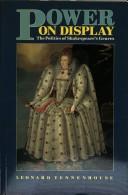
ISBN: 0416012817 Year: 1986 Publisher: New York Methuen
Abstract | Keywords | Export | Availability | Bookmark
 Loading...
Loading...Choose an application
- Reference Manager
- EndNote
- RefWorks (Direct export to RefWorks)
Book
ISBN: 0824054628 Year: 1984 Publisher: New York (N.Y.): Garland
Abstract | Keywords | Export | Availability | Bookmark
 Loading...
Loading...Choose an application
- Reference Manager
- EndNote
- RefWorks (Direct export to RefWorks)
English drama --- Interludes, English --- England --- Civilization --- Drama.
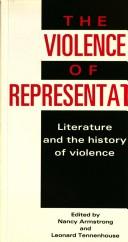
ISBN: 0415014484 0415014476 Year: 1989 Publisher: London Routledge
Abstract | Keywords | Export | Availability | Bookmark
 Loading...
Loading...Choose an application
- Reference Manager
- EndNote
- RefWorks (Direct export to RefWorks)
Sociology of literature --- Comparative literature --- Thematology --- Geweld in de literatuur --- Klassenstrijd in de literatuur --- Language and languages in literature --- Langue et langues dans la littérature --- Literature and politics --- Literature--Political aspects --- Literatuur en politiek --- Literatuur--Politieke aspecten --- Littérature et politique --- Littérature--Aspects politiques --- Lutte des classes dans la littérature --- Politics and literature --- Politics in literature --- Politiek en literatuur --- Politiek in de literatuur --- Politique dans la littérature --- Politique et littérature --- Social conflict in literature --- Sociale strijd in de literatuur --- Taal en talen in de literatuur --- Violence dans la littérature --- Violence in literature --- 82:32 --- Criticism --- -Politics and literature --- Political science in literature --- Literature --- Appraisal of books --- Books --- Evaluation of literature --- Literary criticism --- Rhetoric --- Aesthetics --- Style, Literary --- History --- -Political aspects --- Appraisal --- Technique --- Evaluation --- Language and languages in literature. --- Politics and literature. --- Politics in literature. --- Social conflict in literature. --- Violence in literature. --- -Language and languages in literature --- 82:32 Literatuur en politiek --- Political aspects --- 20th century
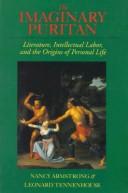
ISBN: 0520077563 0520086430 0585271402 Year: 1992 Publisher: Berkeley : University of California Press,
Abstract | Keywords | Export | Availability | Bookmark
 Loading...
Loading...Choose an application
- Reference Manager
- EndNote
- RefWorks (Direct export to RefWorks)
English literature --- American literature --- Literature and history --- Imagination --- Authorship --- Self in literature. --- Self in literature --- English Literature --- English --- Languages & Literatures --- History and criticism --- Theory, etc. --- History. --- Theory, etc --- History --- Great Britain --- United States --- Intellectual life --- Intellectual life. --- -Authorship --- -Imagination --- -Literature and history --- -Self in literature --- -English literature --- -British literature --- Inklings (Group of writers) --- Nonsense Club (Group of writers) --- Order of the Fancy (Group of writers) --- History and literature --- History and poetry --- Poetry and history --- Imagery, Mental --- Images, Mental --- Mental imagery --- Mental images --- Educational psychology --- Intellect --- Psychology --- Reproduction (Psychology) --- Authoring (Authorship) --- Writing (Authorship) --- Literature --- Agrarians (Group of writers) --- -Theory, etc --- -Intellectual life. --- -History and criticism --- -History and literature --- British literature --- History and criticism&delete&
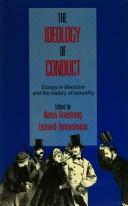
ISBN: 0416386008 0416385907 Year: 1987 Publisher: New York (N.Y.): Methuen
Abstract | Keywords | Export | Availability | Bookmark
 Loading...
Loading...Choose an application
- Reference Manager
- EndNote
- RefWorks (Direct export to RefWorks)
Sex role in literature --- Women --- -Women in literature --- Woman (Christian theology) in literature --- Women in drama --- Women in poetry --- Human females --- Wimmin --- Woman --- Womon --- Womyn --- Females --- Human beings --- Femininity --- Sexual behavior --- -History --- Sex role in literature. --- Women in literature. --- History. --- Women in literature --- Sexual behavior&delete& --- History
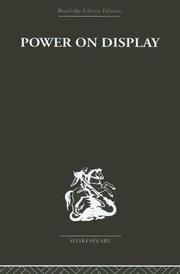
ISBN: 020370844X 1299483364 113503270X 9781135032708 0415353157 9780415353151 9780203708446 9781135032685 9781135032692 9780415612333 Year: 2013 Publisher: Hoboken : Taylor and Francis,
Abstract | Keywords | Export | Availability | Bookmark
 Loading...
Loading...Choose an application
- Reference Manager
- EndNote
- RefWorks (Direct export to RefWorks)
First published in 1986. 'Impressively open to the complexity of cultural discourses, to the ways in which one discursive form may function as a screen for another above all to the political entailment of genre.' Stephen Greenblatt.What is the relation between literary and political power? How do the symbolic dimensions of social practice and the social dimensions of artistic practice relate to one another? Power on Display considers Shakespeare's progression from romantic comedies and history plays to tragedy and romance in the light of the general pr
English --- Languages & Literatures --- English Literature --- Shakespeare, William, --- Political and social views. --- Great Britain --- History --- Historiography. --- Shakespeare, William --- Shakespear, William, --- Shakspeare, William, --- Šekʻspiri, Uiliam, --- Saixpēr, Gouilliam, --- Shakspere, William, --- Shikisbīr, Wilyam, --- Szekspir, Wiliam, --- Šekspyras, --- Shekspir, Vilʹi︠a︡m, --- Šekspir, Viljem, --- Tsikinya-chaka, --- Sha-shih-pi-ya, --- Shashibiya, --- Sheḳspir, Ṿilyam, --- Shaḳspir, Ṿilyam, --- Syeiksŭpʻio, --- Shekspir, V. --- Szekspir, William, --- Shakespeare, Guglielmo, --- Shake-speare, William, --- Sha-ō, --- Şekspir, --- Shekspir, Uiliam, --- Shekspir, U. --- Šekspir, Vilijam, --- Ṣēkspiyar, Viliyam, --- Shakspir, --- Shekspyr, Vyli︠e︡m, --- Şekspir, Velyam, --- Ṣēkspiyar, Villiyam, --- Shēkʻspʻiyr, Vlilliam, --- Ṣēkspiyar, --- Ṣēkspiyar Mahākavi, --- Ṣēkspiyar Mahākaviya, --- Sheḳspier, Ṿilyam, --- Shēkʻspir, --- Shakespeare, --- Śeksper, --- Шекспир, Вильям, --- Шекспир, Уильям, --- שייקספיר, וויליאם, --- שייקספיר, וו., --- שיקספיר, וויליאם --- שיקספיר, ויליאם --- שיקספיר, ויליאם, --- שכספיר, ויליאם, --- שכספיר, וילים, --- שכספיר, ו׳ --- שעפקספיר, וויליאם, --- שעקספיער, וויליאם --- שעקספיער, וויליאם, --- שעקספיער, ווילליאם --- שעקספיער, וו., --- שעקספיר --- שעקספיר, וו --- שעקספיר, וויליאם, --- שעקספיר, וויליאמ --- שעקספיר, ווילליאם --- שעקספיר, ווילליאם, --- שעקספיר, וו., --- שעקספיר, װיליאם, --- שעקספיר, װילליאם, --- שעקספיר, װ., --- שעקספער --- שעקספער, וויליאמ --- שקספיר --- שקספיר, וו --- שקספיר, וויליאם --- שקספיר, וויליאם, --- שקספיר, ווילים, --- שקספיר, וילאם --- שקספיר, ויליאם --- שקספיר, ויליאם, --- שקספיר, ויליים, --- שקספיר, וילים --- שקספיר, וילים, --- شاكسبير، وليم --- شاكسپير، وليم --- شكسبير، وليام --- شكسبير، وليم --- شكسبير، وليم، --- شكسبير، و. --- شكسپير، وليم --- شكسپير، ويليام --- شيكسبير، وليام --- شيكسبير، وليام.، --- شيكسبير، وليم --- شکسبير، وليم --- وليم شکسبير --- 沙士北亞威廉姆, --- 沙士比亞威廉姆, --- 莎士比亞威廉姆, --- 莎士比亞威廉, --- 莎士比亞,
Book
ISBN: 0812294610 0812249763 Year: 2018 Publisher: Philadelphia : University of Pennsylvania Press,
Abstract | Keywords | Export | Availability | Bookmark
 Loading...
Loading...Choose an application
- Reference Manager
- EndNote
- RefWorks (Direct export to RefWorks)
During the thirty years following ratification of the U.S. Constitution, the first American novelists carried on an argument with their British counterparts that pitted direct democracy against representative liberalism. Such writers as Hannah Foster, Isaac Mitchell, Royall Tyler, Leonore Sansay, and Charles Brockden Brown developed a set of formal tropes that countered, move for move, those gestures and conventions by which Samuel Richardson, Jane Austen, and others created their closed worlds of self, private property, and respectable society. The result was a distinctively American novel that generated a system of social relations resembling today's distributed network. Such a network operated counter to the formal protocols that later distinguished the great tradition of the American novel. In Novels in the Time of Democratic Writing, Nancy Armstrong and Leonard Tennenhouse show how these first U.S. novels developed multiple paths to connect an extremely diverse field of characters, redefining private property as fundamentally antisocial and setting their protagonists to the task of dispersing that property-its goods and people-throughout the field of characters. The populations so reorganized proved suddenly capable of thinking and acting as one. Despite the diverse local character of their subject matter and community of readers, the first U.S. novels delivered this argument in a vernacular style open and available to all. Although it differed markedly from the style we attribute to literary authors, Armstrong and Tennenhouse argue, such democratic writing lives on in the novels of Cooper, Hawthorne, Melville, and James.
American fiction --- Democracy in literature. --- Comparative literature --- Nationalism and literature --- Literature and nationalism --- Literature --- History and criticism. --- American and English. --- English and American. --- History --- Cultural Studies. --- Literature.
| Listing 1 - 10 of 14 | << page >> |
Sort by
|

 Search
Search Feedback
Feedback About UniCat
About UniCat  Help
Help News
News